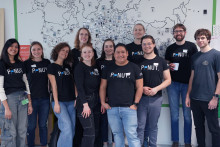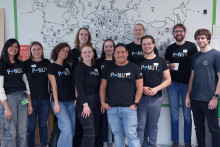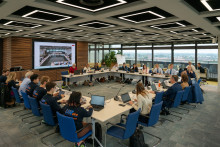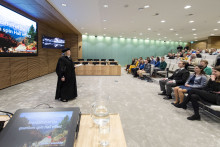Neurodiversity means that people experience and interact with the world in different ways. These differences should be more appreciated, while there is currently too much stigma attached to them, says Mario Boot, secretary of P-NUT. 'Suppose someone with a form of autism is in a research group and needs a certain structure. This can lead to friction with colleagues who do not understand this. But someone with autism may also be able to provide good structure in a group or organization. Another example: a person with ADHD is pushing for a new project because they need new stimuli quickly. With the right understanding and support, this can lead to positive developments,' says Boot.
'Neurodiverse people often feel misunderstood'
Negative image
There is still no consensus in science about what exactly constitutes neurodiversity. Frequently mentioned examples are autism, ADHD, giftedness and high sensitivity. People with different behaviours don't always feel understood, says the secretary of P-NUT. 'That's why we want to draw more attention to the concept of neurodiversity through upcoming events. People who are now considered weird, or who are said to have 'special brains', are not sick or weird. We want those people to be empowered. For example, I would like to work with someone who, despite their dyslexia, is visually very strong.'
Agreement between UT and army
In the new academic year, four co-creation brainstorming sessions are scheduled. With the aim of making the campus more inclusive for neurodiverse individuals. The first speaker is Lieutenant Colonel Marc van den Burgh, who received the Francien de Zeeland medal for his work. The colonel received the award for his commitment to more neurodiversity – in particular autism – in the workplace within the military. 'I approached him spontaneously via LinkedIn and he responded enthusiastically. He appeals to me because Van den Burgh is a forerunner for an inclusive and more diverse army. I see a similarity between the military and universities. After all, both have traditions and a history.'
'Old organisations have old habits'
'Both the Ministry of Defence and universities are progressive and highly developed in technology, but established organisations also have old habits,' Boot explains. The secretary of P-NUT is therefore looking forward to the arrival of Van den Burgh. 'Marc inspires and brainstorms with us about various themes. Do we need to adjust teaching materials? How do we find ambassadors? What does it mean for students? These are issues that will be addressed during this event.'
For whom?
The sessions are for anyone with an interest in the subject. 'Who we want to reach the most is also the hardest to reach. We are happy to invite PhD candidates, but students, families, acquaintances, housemates and people from outside the UT are welcome to contribute ideas about how the UT can embrace neurodiversity.'
Incentive Fund
The funding for the session of 'Minds of all kinds' comes from the Incentive Fund, managed by the UT's Diversity, Equity, Inclusion team. More information about the 'Minds of all kinds' program and registration can be found here.







